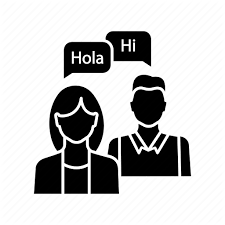Modern methods and training methods foreign language
Abstract
Media education, as a set of means and methods of teaching youth today is more relevant than ever. Changes in education occurring under the influence of the rapid introduction of information technology in all spheres of life, impose serious requirements on the level of competence of a teacher who needs to master the role of a consultant for a student. Researchers and educators from around the world emphasize the special need for media education.
References
Komkov I.F. Methods of teaching a foreign language. - Mn., 1979.
Konsheva A.V. Modern teaching methods // TetraSystems, 2005.
Leontiev A.A. Thought processes in learning a foreign language. - Foreign languages at school, 1975, No. 5.
Lozanov G. Fundamentals of suggestology. - In the book: Problems on suggestologist. Sofia, 1973.
Lozanov G. Suggestopedia in teaching foreign languages. - In: Methods of Intensive Teaching of Foreign Languages. Vol. 1, M., 1973.
Mayorova M.A. Some psychological and pedagogical features of the selection, volume and distribution of educational material in an intensive training course by the method of activating the student’s personality reserve capabilities. - In: Activation of educational activities. Issue 1, M., 1981.

In submitting the manuscript to the International Journal on Integrated Education (IJIE), the authors certify that:
- They are authorized by their co-authors to enter into these arrangements.
- The work described has not been formally published before, except in the form of an abstract or as part of a published lecture, review, thesis, or overlay journal.
- That it is not under consideration for publication elsewhere,
- The publication has been approved by the author(s) and by responsible authorities – tacitly or explicitly – of the institutes where the work has been carried out.
- They secure the right to reproduce any material that has already been published or copyrighted elsewhere.
- They agree to the following license and copyright agreement.
License and Copyright Agreement
Authors who publish with International Journal on Integrated Education (IJIE) agree to the following terms:
- Authors retain copyright and grant the International Journal on Integrated Education (IJIE) right of first publication with the work simultaneously licensed under Creative Commons Attribution License (CC BY 4.0) that allows others to share the work with an acknowledgment of the work's authorship and initial publication in this journal.
- Authors can enter into separate, additional contractual arrangements for the non-exclusive distribution of the International Journal on Integrated Education (IJIE) published version of the work (e.g., post it to an institutional repository or edit it in a book), with an acknowledgment of its initial publication in this journal.
- Authors are permitted and encouraged to post their work online (e.g., in institutional repositories or on their website) before and during the submission process, as it can lead to productive exchanges, as well as earlier and greater citation of published work.





1.png)
